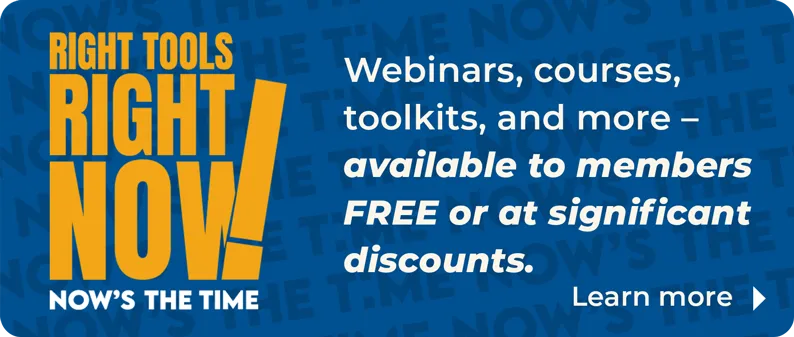“5 Reasons You Should Invest in RPAC” sounds like a great social media promotion piece sure to get some click-throughs to your association’s RPAC page. But if you post it as a Facebook or LinkedIn status update or a tweet, you’ve just violated federal and state election law.
Here’s why: Under federal campaign finance law, a trade association is permitted to solicit contributions for its federal PAC only from its restricted class, which includes its members, executive and administrative personnel, and their families. Because you can’t ensure that all of your social media followers are members, you can’t solicit RPAC investments via a status update or tweet or Instagram photo.
But you can still use Facebook and other social media for RPAC if you follow these guidelines.
Don’t ask, just the facts
You may not post anything that could be considered a solicitation for an RPAC contribution on any social media that is open to the public. Terms such as donate, invest, contribute, participate, give, join, etc., in your communications are clear solicitations, but so are posts that encourage contributions simply by pointing out the benefit of RPAC to the real estate industry or to members’ businesses. For example, if you post the names of Sterling R contributors and describe them as ensuring the future of the industry, then you are encouraging others to do the same. However, you can simply post the names of Sterling R contributors.
You may post general RPAC facts and financial information, such as how much has been contributed or the number of contributors to RPAC in a given period.
You may not post anything that expressly encourages attendance at an RPAC fundraising event. For example, tweeting: “Our RPAC Casino Night Sept. 12 will be the event of the year!” is encouraging attendance. You may, however, post information and photos after the RPAC event and mentioning how much money was raised for RPAC.
Restrict member RPAC posts
Federal campaign finance law also covers the posts and tweets your elected leaders and members make about RPAC. Although members can post factual information about themselves such as being a Major Investor, they cannot write posts encouraging others to make similar RPAC contributions. If a member posts an RPAC solicitation on your association Facebook page, delete it immediately.
Of course, associations can post any RPAC information they want in a Facebook group as long as it is closed to just members (just the solitictable class), for example a REALTOR® YPN group.
More details online
For more information and examples on what you can and can’t post about RPAC online, visit the Realtor Action Center or contact Liz Demorest at 202-383-1030 or ldemorest@realtors.org.








